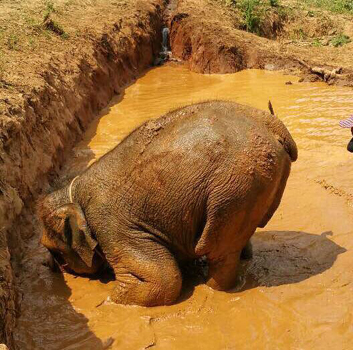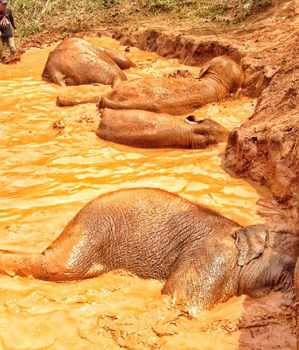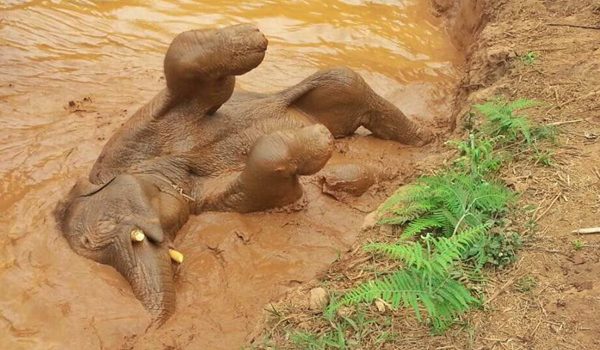In the heart of the Karen region, an elephant sanctuary known as the Karen Elephant Experience Project has become both a sanctuary and a subject of controversy. While it was established with noble intentions to provide a safe haven for these majestic creatures, the realities of life within its confines are far from tranquil. This article aims to shed light on the complex and often disquieting existence that elephants experience in the project, offering a balanced perspective on the situation.

The Karen Elephant Experience Project was conceived as a response to the concerns surrounding elephant tourism and exploitation in Southeast Asia. Its mission was to offer a more ethical alternative by creating a space where elephants could live freely, away from the pressures of performing and carrying tourists. The project aimed to support the elephants’ physical and emotional well-being while promoting awareness about responsible wildlife interactions.

However, despite its initial intentions, the project has been met with criticism from animal welfare advocates and conservationists. Reports suggest that the sanctuary’s elephants face challenges ranging from inadequate living conditions and insufficient medical care to limited freedom of movement. These allegations have cast a shadow over the project’s purported dedication to elephant welfare.

The life of elephants within the Karen Elephant Experience Project is far from the idyllic existence one might envision. While the project does provide elephants with protection from certain forms of exploitation, its shortcomings in terms of space, veterinary care, and social interactions raise ethical concerns. Elephants are social animals that require a vast expanse of land to thrive, and being confined within limited spaces can lead to physical and psychological distress.

The complexities surrounding the Karen Elephant Experience Project illuminate broader issues within the realm of wildlife conservation and animal welfare. The controversy serves as a reminder that well-intentioned projects must continually reassess their practices to ensure that their actions align with their stated goals. Ethical considerations should prioritize the overall health and well-being of the animals, not just the optics of their treatment.
The challenges faced by the Karen Elephant Experience Project underscore the need for a balanced approach to ethical wildlife tourism. While the desire to observe and interact with these magnificent creatures is understandable, it must be balanced with respect for their natural behaviors and habitat needs. True ethical tourism should prioritize minimal interference and ensure that the welfare of the animals takes precedence.
The complexities surrounding the Karen Elephant Experience Project invite ongoing discussions about responsible and ethical wildlife tourism. While the project may have triggered important conversations about elephant welfare, it also underscores the need for constant vigilance and accountability within such endaors.
The Karen Elephant Experience Project highlights the intricate realities of establishing ethical wildlife sanctuaries. While the intentions were noble, the challenges faced by elephants within the project’s confines indicate that there is much to learn and improve upon. The situation calls for a commitment to transparent conversations, ethical considerations, and the well-being of the animals themselves. Ultimately, the project’s journey serves as a reminder that responsible and respectful interactions with wildlife must always be at the forefront of such endaors.